MercoPress. South Atlantic News Agency
Agriculture
-
Wednesday, May 3rd 2023 - 10:56 UTC
UK expected to reopen Brazilian poultry imports at the latest in June, minister Fávaro

With no new shipments since 2017, Brazilian poultry exports to the UK are set to be re-launched this year, announced Minister of Agriculture Carlos Fávaro at an agribusiness seminar in São Paulo last week.
-
Wednesday, May 3rd 2023 - 10:30 UTC
Uruguay starts vaccinating poultry against avian flu
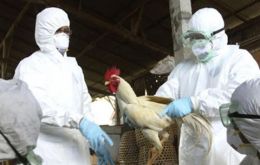
Uruguayan authorities began vaccinating poultry against avian flu with immunizers from the United States, it was reported Tuesday in Montevideo. An additional batch of chemicals is due from Mexico shortly.
-
Monday, April 24th 2023 - 16:32 UTC
Moscow warns Ukraine's Black Sea “export channel” conditioned by West obstacles to Russian trade
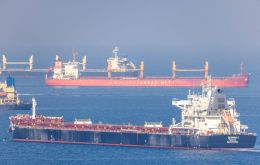
Moscow warned that the outlook for extending a deal beyond May 18 that allows the safe wartime export of grain and fertilizer from several Ukrainian Black Sea ports was “not great” as Russia’s own such exports still faced obstacles.
-
Monday, April 24th 2023 - 09:20 UTC
Chile reports first human case of avian influenza; Uruguay begins vaccination in commercial poultry farms
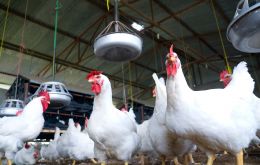
The Ministry of Health of Chile notified WHO of the detection of human infection with avian influenza A(H5) virus. The patient is a 53-year-old male from the Region of Antofagasta in the north of Chile. He had no history of comorbidities or recent travel.
-
Friday, April 21st 2023 - 10:45 UTC
Uruguayan agricultural emergency extended until when?

Uruguayan authorities Thursday announced the current declaration of agricultural emergency will be extended until September from April 24.
-
Wednesday, April 19th 2023 - 09:41 UTC
Brazil despite larger wheat crops, remains a net importer, but declining
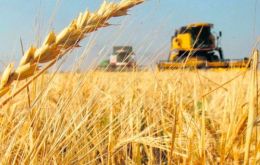
Brazilian farmers will harvest a record wheat crop of 11.3 million tons in the 2023/2024 season, compared with 11 million tons in the previous one, StoneX said on Monday. In its first forecast for the new crop, StoneX said farmers will expand the planted area by 6.1% to 3.48 million hectares (8.599 million acres).
-
Wednesday, April 19th 2023 - 09:35 UTC
Grains inspectors strike in chaotic Argentina, freezes shipments in the Parana
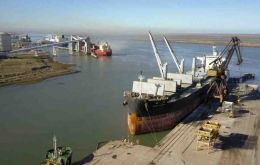
In chaotic Argentina, grains inspectors have launched a 24-hour strike that is halting shipments at key Parana river ports in farm transport hub Rosario, the ports chamber CAPyM said on Monday, April 17.
-
Friday, April 14th 2023 - 09:00 UTC
Australian farmers headed for one of their best production and export years

Australian farmers are predicted to see their most valuable year ever with a bumper crop. Agricultural exports are forecast to hit a record US$75bn in the year to the end of June, according to the Australian Bureau of Agricultural and Resource Economics (ABARES).
-
Wednesday, April 12th 2023 - 11:06 UTC
Another consequence of historic Argentine drought: it could lose its position as world's main soy meal exporter
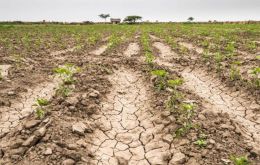
Argentina could soon face the consequences of the historic drought ravaging its agricultural and industrial processing potential. This means the country may soon cease to be the world’s largest exporter of soy-meal, since domestic oilseed production, because of the historic drought is likely to reduced by 36% year-on-year to just 27 million tons in the 2022/23 cycle, said the Rosario Stock Exchange (BCR).
-
Wednesday, April 12th 2023 - 10:04 UTC
Brazil recovers the Russian market for its beef exports
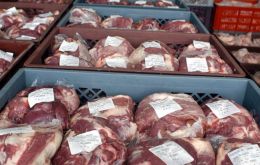
Brazil has announced the end of the Russian embargo on Brazilian beef produced and exports in the state of Pará. Russia imposed the restrictions during March, after the confirmation of an atypical case of BSE or “mad cow” disease in Marabá, in the south of the state, in late February.